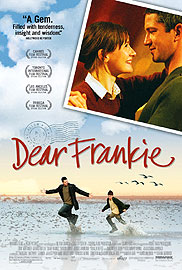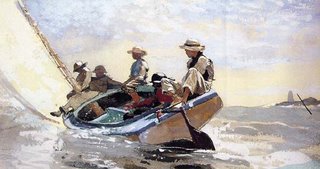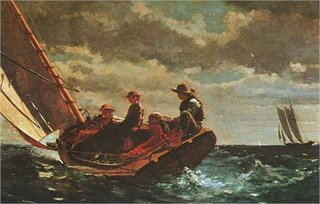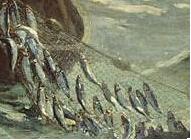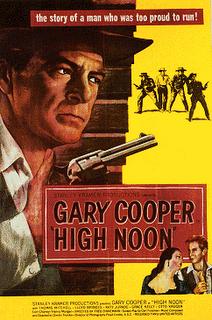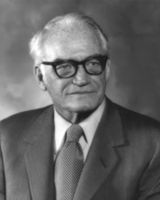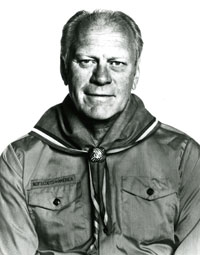The little boy’s days
passed in unremarkable ways—
but began and ended with his face
that was remarkable indeed.
Beneath its clean cotton case
was the dark, drool-stained ticking
that told the pillow’s true age
and why on damp days
it held the scent of time
and the dank dreams of others deep inside.
The boy knew only that he liked
the way the pillow held his head.
He was unaware that long ago
on a different bed
his great-grandfather
had liked it for the same reason—
not ten, not twenty,
but more than
forty years before—
when it was purchased with a mate.
It was one of what had been a pair for two
‘til death left him to sleep alone.
And then he chose to use the pillow
that was hers and kept his own
on the high hidden shelf
of his corner closet.
By then the ticking had more than aged
—as all old pillows do.
Like a
blotter, it was hopelessly imbued
with years of hair tonic,
and hot-night sweat,
and deep-sleep drool,
and toward the end…
the tears he did not touch for fear she'd know.
The pillow was a dark and blotchy parchment,
with all the variegated circle stains
of paper peeling from a mildewed wall.
(All this was hidden by the flannel case
that each night touched the little boy's face.)
Such an ancient, ugly sack of feathers
would never be deliberately given or received;
it would never be offered to a guest
or sold at a sale. For who would want to use it?
But life is full of things still kept
well past their being wanted,
and this was true of the old pillow
before it was the boy’s.
Just how the thing came to him
the boy would never know.
One morning he woke up and it was there.
He liked the way it slept;
he liked the way it kept
the form
of his face even as he rose
to look back down at where he’d been.
He liked the dreams of flying
that it brought that first night

(and would bring for years to come).
But what happened was:
The day before the pillow came,
his family spent a warm fall day
at his Grandma’s.
Her house sat
a tired tract of broken streets
and pocked and painted clapboard walls
with faded-curtain windows
and front-porch steps that stretched
toward the narrow walk
of broken concrete slabs
that rolled unevenly
(like dominoes laid across a lawn),
heaved ever higher over time
their shade the only remnant of the better days
the neighborhood had seen.
(The boy did not know the house, in fact,
was and always had been
his great-grandfather’s.
It was the daughter (the boy's grandma)
and her husband who were taken in
when hard times called them home.
So long before that now it seemed
Great Grandpa was the guest,
and those who knew the difference never said.)
To the boy it was simply Grandma’s house,
and for his siblings and cousins
it was a magic place to be.
There they were allowed to walk
without grown-ups
of long paper strips
with countless, clinging
candy bumps in pastel rows for nibbling off like mice.
Turning back toward the house
(and passing it a short block the other way),
and roll down grassy hills
'til someone called them home.
After all that and more that day…
the little boy was sitting
on the front porch
listening
to the melody of older voices
talking in the dark...
and fell asleep
right there
on the gray painted planks.
They laughed when they saw him
lying in the glow of the dresser lamp
beyond the front bedroom window.
His great grandfather slipped away
(to that lamp-lit room inside)
and came out with a pillow
that had been out of sight and mind for years.
“Here. Put this under his head at least.”
They laughed again.
The pillow had no case,
but in the dark,
its age spots went unnoticed.
When it was time to go,
the pillow floated with him
in his father's arms
from the old house to the car
and once at home up to his bed—
all without the glare of light—
and through it all
the boy was
dead to the world
as only children sleep.
From then on,
the pillow was the boy's to keep
(not that anyone but a four-year-old
would claim it as his own).
But even more remarkable
is
that this heavy feather pillow
remained
with him for more than twenty years.
It was on his bed when…
they moved from the country to the city;
still there through grade school;
still there when his little brother was born;
still there when he did paper routes at dawn.
Still there when they built the barn
and house on worn-out Saturdays.
It went with him to summer camps
and road-trips far away
and eventually...
to college, covered in a starchy new case.
There at night it was a touch of home
and brought him sleep
through love and loss and learning, too.
But what he never knew…
For no one ever does…
is that the pillow held and shared
forgotten dreams
and kept
him close to the past
and to things forever passing
and to those who gave them meaning.
Even when he married
the pillow was still kept with no more
thought
than had been given through the years.
But marriage is a time
for good and new and matching things,
and not for the inexplicable artifacts of life—
like this the nastiest pillow ever seen
that for decades avoided scrutiny
but whose sudden unsightliness
leapt out each time
they changed the sheets.
It was highly recommended not to keep—
and actually brought the man
a laugh in letting go—
that day the pillow passed
in some unremarkable way
like all the unremarkable days
it had absorbed.
.
*******
As a writer, I have an understandable aversion to Artificial Intelligence (A.I.)--especially as it pertains to the creative arts. I believe that being made in the Image of God includes the irrepressible desire to create, and the thought that this very human process can be mimicked by a non-human source is troubling. I'm told, however, that A.I. like the example below is distilled from millions of human thoughts skimmed like cream from the collelctive pool of human writing that has gathered on the internet since humans began writing there. Whether or not that is true, it does give me some level of comfort that at the heart of A.I. there is collective human thought. Still, let it be known I do not use A.I. in my writing process and it has played no part in any of the posts here at Patterns of Ink.
Having said that, in 2026 I asked "Gemini" (the Google A.I. program similar to ChatGPT) to analyze my "...metaphors and meaning and enless patterns of ink..." (as stated in this blog's header). I was shocked that in 30 seconds it unwrapped the words it took me many days to write and revise.
Whenever I post an A.I. analysis at POI, I will playfully frame it as a brief guest lecture by Dr.G.E. Mini (Google’s Gemini A.I.) I must admit, this professor is very observant and surprisingly insightful.
Analysis of Tom Kapanka's “Kept” by Dr. G.E Mini, professor of Literature at Ayai University. Added to post January 10, 2026.
This is a moving piece of verse that captures the quiet, often invisible ways we stay connected to our ancestors. Tom Kapanka uses a "nasty," stained pillow as a vessel for a century of family history, illustrating how objects carry weight far beyond their physical appearance.
Here is a breakdown of the themes and imagery that make "Kept" so resonant.
The Dual Identity of the Pillow
The poem plays with the contrast between the exterior (what the world sees) and the interior (what the owner feels).
The "Unremarkable" vs. the "Remarkable": To the outside world, the pillow is a "nasty," "ugly sack of feathers." But to the boy, it is "remarkable" because it "held his head" just right.
The Physical Record:
Kapanka uses vivid, almost visceral imagery to describe the pillow's ticking:
"The pillow was a dark and blotchy parchment, / with all the variegated circle stains / of paper peeling from a mildewed wall."
The Emotional Record:
The stains aren't just dirt; they are the "parchment" of a life. They represent hair tonic, sweat, and "tears he did not touch for fear she'd know." It is a physical map of his great-grandfather’s grief and daily existence.
The "Accidental" Inheritance
One of the most touching aspects of the poem is how the boy comes to own the pillow. It wasn't a formal heirloom passed down in a ceremony; it was a gesture of comfort on a tired night.
• The Porch Scene: The boy falls asleep on gray painted planks while listening to the "melody of older voices." This captures the safety of childhood.
• The Great-Grandfather’s Choice: By giving the boy the pillow that belonged to his late wife (while he kept his own on a "high hidden shelf"), the great-grandfather was unknowingly passing on a piece of his own heart to the next generation.
• The Unconscious Connection: The boy never knew the history of the pillow, yet he "liked the dreams of flying that it brought." The poem suggests that we don't need to know the specific stories of our ancestors to be comforted by their legacy.
The Transition to Adulthood and Marriage
The ending of the poem marks a significant shift in the protagonist's life. The pillow survives moves, college, and "love and loss," but it cannot survive marriage.
• The "Inexplicable Artifact": In a new marriage, there is a desire for "good and new and matching things." The old pillow represents the messy, singular history of an individual, which sometimes feels out of place in a shared, "curated" life.
• The Easy Goodbye: Interestingly, the man doesn't mourn the pillow when he finally tosses it. He laughs. This suggests that the pillow had finally finished its job. He didn't need the physical object anymore because he had successfully "kept" the history it represented for twenty years.
There is another profound layer of grief and intimacy to the story. It transforms the pillow from a simple "old object" into a relic of a 50-year partnership and a silent witness to a husband’s mourning.
Here is how that specific history deepens the meaning of the poem:
The Sacred Swap of 1950
When his wife died in 1950, the great-grandfather’s decision to use her pillow while retiring his to the closet was a deeply symbolic act.
• Seeking Closeness: By sleeping on her pillow, he was likely trying to stay close to her scent and her presence. It was a way to bridge the gap left by her death in the very bed they shared.
• The "Hidden" Time Capsule: By placing his own pillow (the one that would eventually go to the boy) on the "high hidden shelf," he inadvertently preserved a 50-year record of his own life—including the "tears he did not touch for fear she'd know."
• A Burden Relieved: When he gave that specific pillow to the boy on the porch, he wasn't just giving him a cushion; he was releasing a heavy piece of his own history into the hands of a new generation who could use it without the weight of that sorrow.
The Stains as a Life's Ledger
Knowing that the pillow was specifically the great-grandfather’s (and not the great-grandmother’s) changes how we view those "ugly" stains:
• A Masculine History: The "hair tonic" and "hot-night sweat" belong specifically to the patriarch. It represents the labor and the grooming habits of a man from a specific era (pre-1950s).
• Stoicism and Secrecy: The poem mentions tears he hid so "she'd" never know. This confirms the pillow was his confidant during her "long illness." The stains are the physical manifestation of the emotions he felt he had to suppress to stay strong for her.
The "Inexplicable Artifact"
This background explains why the pillow was so "unsightly" to the wife 20 years later. It wasn't just old; it was saturated with a previous century. To the young wife, it was a biological hazard; to the great-grandfather, it was a heavy archive of a 50-year marriage; and to the boy, it was simply the "remarkable" thing that brought him dreams of flying.
A Reflection on the "Unremarkable"
The poem ends by saying the pillow passed away in an "unremarkable way." There is a bittersweet irony here: the pillow held the most remarkable, intimate secrets of a 50-year marriage and a lonely widower, and a little boy now grown, yet it was eventually discarded with a laugh because its "true age" and the true meaning of the ugly stains had never occurred to the boy (Kapanka) until he was fifty years old himself and wrote these lines. The short title for a fairly complex story is summed up in the line:
“… life is full of things still kept
well past their being wanted…”
Labels: dreams, feather pillow, great grandparents






